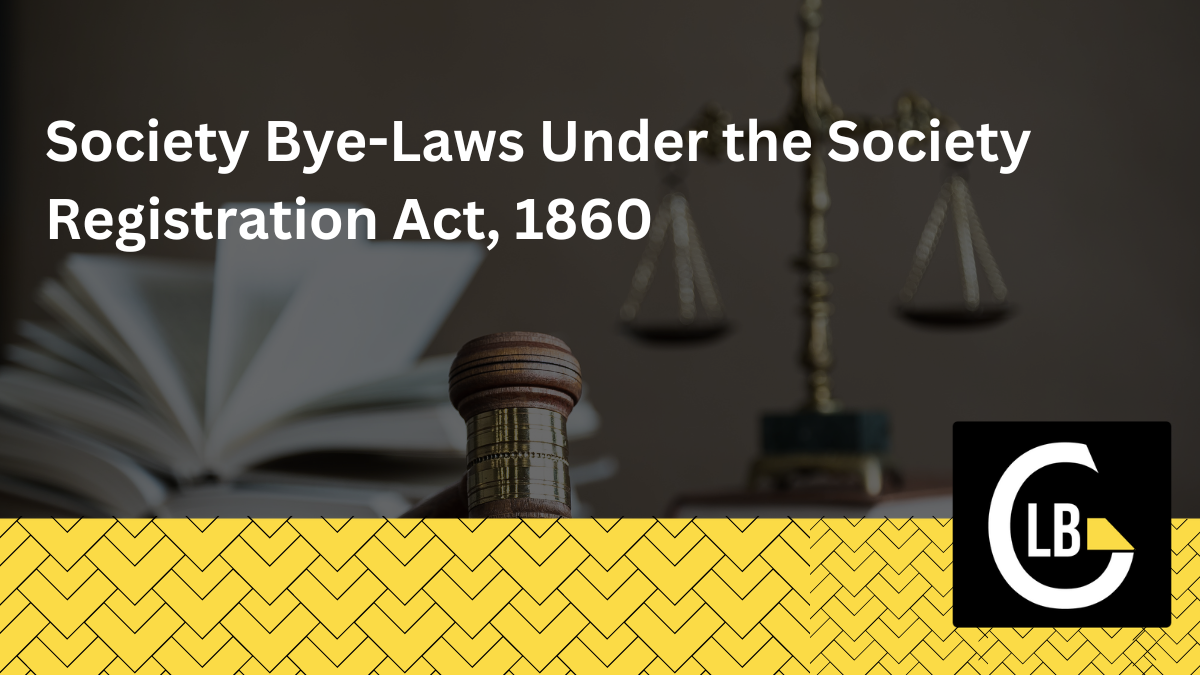The Society Registration Act of 1860 is a key law in India that provides a framework for establishing and managing societies like charitable organizations, educational groups, and cultural associations. An important part of this law involves creating bye-laws—the rules that help a society function smoothly.
Let’s break down what bye-laws are, why they matter, and what they typically include.
What Are Bye-Laws?
Bye-laws are the internal rules that outline how a society operates. Think of them as a manual that helps members understand how decisions are made, who’s responsible for what, and how different activities should be carried out. Without these rules, a society might face confusion and inefficiency, as there would be no clear guidelines for how to manage its operations.
Key Components of Bye-Laws
While each society has its own specific bye-laws, there are some common elements that most societies include:
- Name and Address: This section records the society’s official name and where it’s registered.
- Purpose: The reason the society exists, such as promoting education, supporting social welfare, or advancing arts and culture.
- Membership: Defines who can join the society, how members are added or removed, and their rights and responsibilities.
- Leadership: Outlines the roles of office-bearers like the President, Secretary, and Treasurer, along with how they are selected and what their duties are.
- Meetings: Specifies how often meetings will be held, the process for calling meetings, and the number of members required for making decisions (known as a quorum).
- Finances: Details how the society’s funds will be handled, who oversees financial decisions, and how audits will be conducted to ensure transparency.
- Amendments: Explains how the society can make changes to its bye-laws, typically through a formal voting process.
- Dissolution: If the society needs to close down, this part describes the process for doing so and how the society’s assets will be managed.
Why Are Bye-Laws Important?
Bye-laws are essential for several reasons:
- Structure and Clarity: They give a clear framework for how the society is organized and run.
- Problem-Solving: They act as a guide for resolving disputes within the society, offering a fair way to handle disagreements.
- Legal Compliance: Bye-laws ensure the society follows the legal requirements of the Society Registration Act, 1860, protecting it from legal issues.
- Accountability: They help ensure that the society’s operations, especially in terms of decision-making and finances, remain transparent and accountable to its members.
Can Bye-Laws Be Changed?
Yes, bye-laws can be updated as needed. Societies often evolve over time, and their rules may need to change to keep up with new challenges or opportunities. The Society Registration Act allows amendments, but these changes usually require a formal process—typically involving a majority vote from the society’s members.
Conclusion
Bye-laws are the foundation of a society’s governance. They provide clear guidelines for how the society will achieve its goals and ensure it operates smoothly and legally. The Society Registration Act of 1860 sets the overall framework, but it’s the bye-laws that define the specifics of how a society functions.
